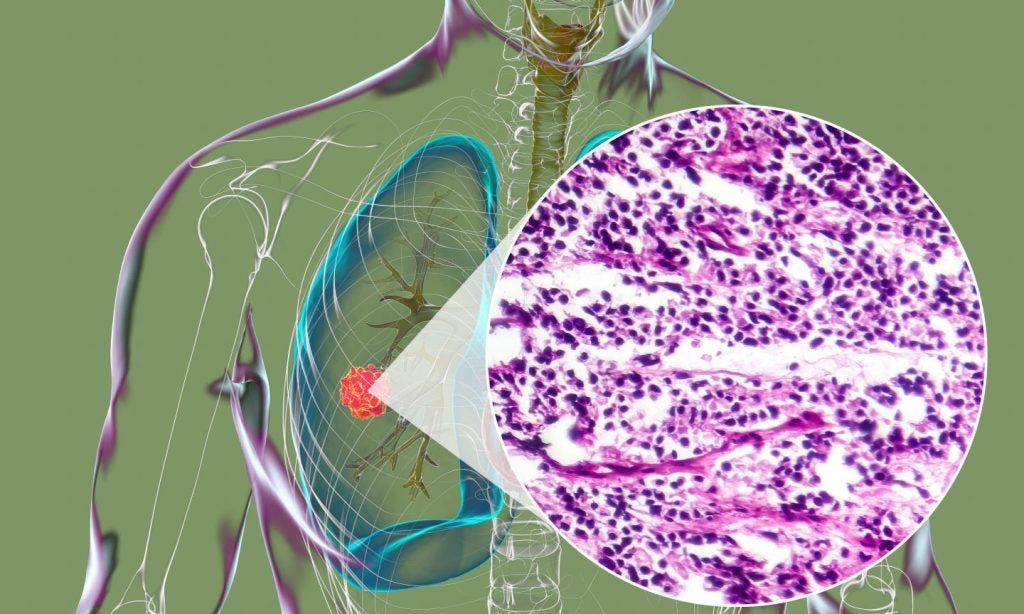The US Food and Drug Administration (FDA) has granted an orphan drug designation to MAIA Biotechnology’s cancer telomere-targeting agent THIO for patients with glioblastoma multiforme (GBM).
Data presented to the FDA demonstrated that THIO could successfully penetrate the blood-brain barrier in syngeneic and humanised murine models of telomerase-expressing brain cancers.
THIO has now received three orphan drug designations, including one each for hepatocellular carcinoma (HCC) and small cell lung cancer (SCLC) in 2022. Enrolment for a Phase II trial of THIO (NCT05208944) is currently ongoing, evaluating the drug candidate in patients with advanced non-small cell lung cancer (NSCLC).
THIO is a first-in-class small molecule cancer telomere-targeting agent. According to the 10 November press release, it is the only direct telomere targeting agent currently in clinical development.
A report from GlobalData’s Pharmaceutical Intelligence Centre highlights that GBM exhibits one of the highest levels of unmet need across all of oncology. The report shows that the total market value for the 15M, which includes both cell and gene therapies and traditional GBM therapies, is expected to increase from $630m in 2021 to $3.19bn in 2031.
GlobalData is the parent company of Pharmaceutical Technology.
Last month, the FDA granted fast-track designation for DOC1021, a cell therapy to treat GBM, being developed in a partnership between Cellipont Bioservices and Diakonos Oncology. The FDA also granted fast-track designation to MimiVax’s SurVaxM vaccine for the treatment of newly diagnosed GBM.
On being awarded the orphan drug designation, MAIA CEO and chairman Vlad Vitoc said: “We are pleased to receive a third orphan drug designation for THIO, further highlighting FDA’s recognition of THIO’s potential in the treatment of multiple cancer indications, including rare ones such as glioblastoma.”















